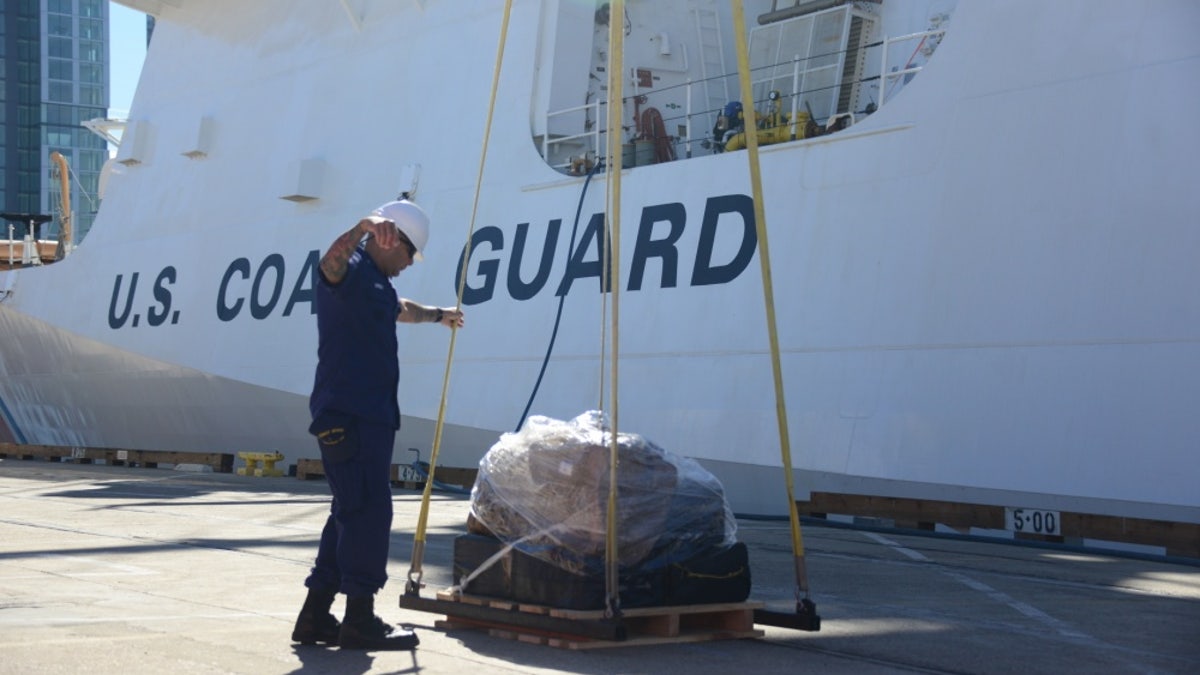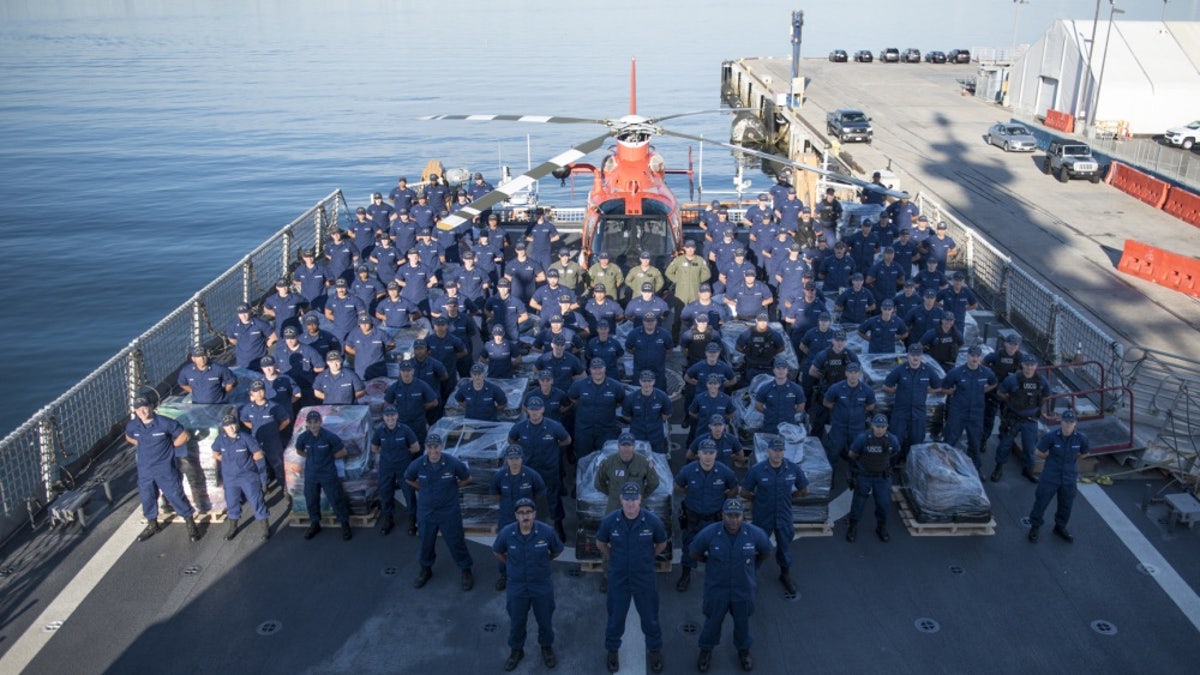The U.S. Coast Guard offloaded roughly 36,000 pounds of cocaine into a California pier on Tuesday, which had been seized during a drug patrol operation in the Pacific Ocean.
The drugs, estimated to be worth around $500 million, were taken during 17 different seizures by five Coast Guard vessels during February and March, officials stated in a news release.
The drugs were offloaded on Tuesday by crew members of the USCGC Bertholf at San Diego's B Street pier, KFMB-TV reported.
“This offload by the Bertholf represents the great work being conducted in the Eastern Pacific combating the transnational organized crime groups, behind the drug trade which spread instability, fear and harm to people, communities and entire nations,” Rear Adm. Todd Sokalzuk, the 11th Coast Guard District commander, said.
NAVAL ACADEMY DRUG RING UNDER INVESTIGATION: LSD, COCAINE ALLEGEDLY BOUGHT ON DARK WEB
Sokalzuk added that the crews aboard the Venturous, Bear, Diligence and Harriet Lane cutters, in addition to the Bertholf, assisted in the seizures of "record amounts of cocaine for the third year in a row."

Crews aboard the Venturous, Bear, Diligence, Harriet Lane and Bertholf cutters assisted in the seizures. (U.S. Coast Guard)
The Bertholf's commanding officer, Capt. John Driscoll, echoed similar sentiments, praising the crews who "worked around-the-clock."
The cocaine that was seized "would have gone to fund the nefarious work of transnational criminal organizations," Driscoll said, and noted that the seizure "helps prevent a great deal of human suffering and will likely save hundreds of lives that would have been lost to these illegal drugs."

The drug seizure operation is part of a "Western Hemisphere Strategy" implemented in the Eastern Pacific Ocean and Caribbean, believed to be "known drug-transit zones," officials said. (U.S. Coast Guard)
The Coast Guard stated the drug seizure operation is part of a "Western Hemisphere Strategy" implemented in the Eastern Pacific Ocean and Caribbean, believed to be "known drug-transit zones."
The Department of Homeland Security, Department of Defense and and Justice Department also aided in the efforts, officials said.

